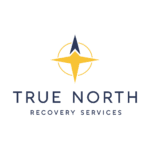Supporting a loved one through addiction is a profound journey that demands empathy, understanding, and patience. Addiction is a complex disease affecting not only the individual but also those around them. If you’re wondering how to help someone with addiction, this guide offers practical steps and insights to assist you in providing meaningful support.
Understanding Addiction
Before diving into support strategies, it’s crucial to comprehend what addiction entails. Addiction is a chronic disease characterized by compulsive substance use despite harmful consequences. It affects brain function and behavior, leading to an inability to control the use of legal or illegal substances. Recognizing addiction as a medical condition rather than a moral failing is the first step in offering compassionate support.
Educate Yourself About Addiction and Recovery
Knowledge is a powerful tool. By educating yourself about the nature of addiction, its causes, and the recovery process, you can better understand what your loved one is experiencing. This understanding fosters empathy and equips you to provide informed support.
Open and Non-Judgmental Communication
Effective communication is foundational in supporting someone with addiction. Approach conversations with kindness and without judgment. Use “I” statements to express your feelings and concerns, such as, “I feel worried when I see you struggling.” This approach minimizes defensiveness and encourages open dialogue.
Encourage Professional Help
While your support is invaluable, professional treatment is often essential for recovery. Encourage your loved one to seek help from therapists, counselors, or rehabilitation programs. Offer assistance in researching options or accompanying them to appointments, demonstrating your commitment to their well-being.
Set Healthy Boundaries
Establishing clear boundaries is vital to protect both yourself and your loved one. Boundaries prevent enabling behaviors and promote responsibility. For instance, you might decide not to cover for them if they miss work due to substance use. Communicate these boundaries clearly and stick to them consistently.
Avoid Enabling Behaviors
Enabling involves actions that inadvertently support or excuse the addictive behavior. This can include providing money, covering up for their mistakes, or shouldering their responsibilities. Instead, focus on supportive behaviors that encourage accountability and self-sufficiency.
Foster a Supportive Environment
Creating a safe and supportive environment can significantly impact your loved one’s recovery journey. This might involve removing substances from the home, encouraging healthy routines, and being mindful of potential triggers that could lead to relapse.
Practice Patience and Understanding
Recovery is often a long and non-linear process, with potential setbacks along the way. It’s essential to remain patient and avoid expressing frustration or disappointment. Celebrate progress, no matter how small, and provide reassurance during challenging times.
Take Care of Yourself
Supporting someone with addiction can be emotionally taxing. Ensure you’re also attending to your own physical and mental health. Engage in activities that rejuvenate you, seek support from friends or support groups, and consider counseling if needed. Remember, you can’t pour from an empty cup.
Encourage Healthy Lifestyle Choices
Promote activities that contribute to overall well-being, such as regular exercise, balanced nutrition, and sufficient sleep. Engaging in hobbies or new interests can also provide positive outlets and reduce the focus on substances.
Be Prepared for Relapses
Relapse can be a part of the recovery journey. If it occurs, approach the situation with compassion rather than judgment. Encourage your loved one to seek help promptly and reinforce your support for their continued recovery efforts.
How We Can Help at True North Recovery Services
At True North Recovery Services, we understand the complexities of addiction and the courage it takes to seek help. Our mission is to guide individuals on their journey away from substance abuse toward self-discovery and fulfillment. We offer comprehensive outpatient addiction treatment tailored to meet the unique needs of each client. Our services include:
- Opioid and Alcohol Addiction Treatment: Specialized programs addressing the specific challenges associated with opioid and alcohol use disorders.
- Comprehensive Medical Care: High-quality medical support to manage withdrawal symptoms and underlying health issues.
- Recovery Support Services: Ongoing support to help clients maintain sobriety and build a fulfilling life post-treatment.
Our compassionate team is dedicated to providing a supportive environment where individuals can embark on their recovery journey with dignity and respect. We believe in a holistic approach, encouraging clients to explore new pathways that support their personal growth and long-term sobriety.
Final Word
Supporting someone with addiction is a challenging yet rewarding endeavor. By educating yourself, communicating effectively, encouraging professional help, and practicing self-care, you can play a pivotal role in your loved one’s recovery journey. Remember, while your support is crucial, professional treatment provides the specialized care necessary for lasting recovery. At True North Recovery Services, we’re here to help both you and your loved one navigate this path toward a healthier, more fulfilling life.
If you or someone you know is struggling with addiction, don’t hesitate to reach out for help. Recovery is possible, and support is available.


